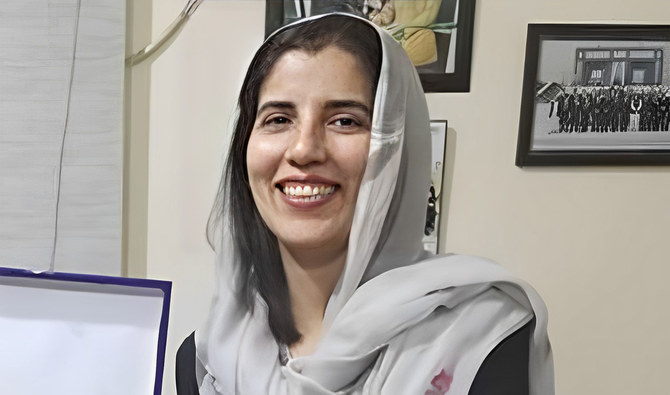ISLAMABAD: Pakistan’s Chief Justice Qazi Faez Isa appointed the country’s first ever woman registrar of the Supreme Court on Sunday when he announced the name of District and Sessions Judge Jazeela Aslam for the post.
The announcement was made shortly after Justice Isa took oath of office from President Arif Alvi as Pakistan’s 29th chief justice on Sunday, a day after his predecessor Umar Ata Bandial hanged his robes. According to a notification by the Lahore High Court (LHC), Aslam has been appointed to the post for a tenure of three years.
Before her appointment as registrar, Aslam was serving as the district and sessions judge in Okara and in the same position, has also served at Pakistan’s Kasur and Sialkot cities, a press release from the Supreme Court said. She is also the senior most lady district and sessions judge in Pakistan’s Punjab province, it added.
“For the first time in the country’s history a lady has been appointed as Registrar of the Supreme Court, which is a commendable achievement for a working mother of three and serves as a beacon to dedicated lady judicial officers,” the press release stated.
The statement said Aslam’s appointment was in harmony with Pakistan’s constitution, which calls for the executive to be separated from the judiciary.
“She considerably exceeds the minimum qualification and experience stipulated in the Supreme Court Establishment Service Rules, 2015,” the statement added.
Aslam secured a First Division grade in her Bachelor of Arts program from Kinnaird College in Lahore and did her L.L.B. (Bachelor of Laws) from Punjab University. She secured second position in the judicial competitive examination of Punjab and went on to join the Punjab Judicial Service as a civil judge/judicial magistrate in May, 1994.
According to the Supreme Court, Aslam has also worked as a deputy solicitor and an instructor in the Federal Judicial Academy, and has also served at the post of director academic in the Punjab Judicial Academy.
Aslam wrote Guidelines on Writing Judgments (2019) for the use of civil judges and prepared a report on the Property Rights of Women (2020) and has participated in international conferences on environment laws, mediation and judicial reforms, the Supreme Court’s press release added.














